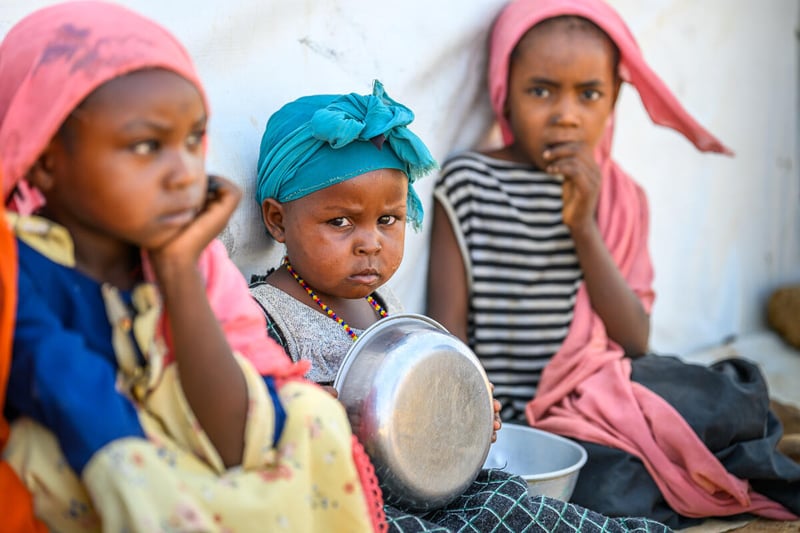Time is running out: children’s lives at risk amid El Fasher crisis
Media Contact :
November 13, 2025
Senior Public Relations Manager
[email protected]
m 404-735-0871
Media Contact :
November 13, 2025
Senior Public Relations Manager
[email protected]
m 404-735-0871

PORT SUDAN (November 13, 2025) – Without urgent lifesaving assistance, children arriving in East and South Darfur—having fled the escalating conflict in El Fasher—are at risk of dying from hunger and severe malnutrition, Christian humanitarian organization World Vision warns.
World Vision teams have registered over 7,000 people, including 5,000 children fleeing the escalating conflict in El Fasher, with more still arriving. These families are arriving in dire condition, having fled as fighting raged only to face nearly no food, water, or lifesaving aid. Their suffering, worsened by the long and difficult journey, is clear and urgent.
“What we are witnessing is an absolute tragedy,” said Inos Mugabe, World Vision’s operations director in Sudan. “These children and their families escaped the siege, and they need immediate support. They look weary and severely malnourished. Their bodies are failing, and without urgent, large-scale intervention—right now—we will lose them. We are receiving the most vulnerable people imaginable, but the existing resources are utterly non-existent to sustain them. The world must understand the gravity of this situation and act before it’s too late.”
The rapid influx has placed immense strain on humanitarian teams and increased pressure on World Vision’s already limited resources to serve communities in Darfur.
“Every hour of delay increases the risk of death for more children,” Mugabe said.
World Vision teams are providing clean drinking water, buckets, and plastic sheets for shelter, but more is needed.
World Vision is providing psychological counseling to help affected children cope with trauma, but the needs remain overwhelming, said Bahareldin El Haj, a World Vision child protection coordinator in Sudan.
“More than 5,000 children have arrived here, stripped of their homes, safety, and basic needs,” said El Haj. “Beyond physical hunger and thirst, their psychological wounds run deep. They have witnessed unimaginable horrors. They are unaccompanied or separated from family members, which raises their risk of abuse and exploitation. Our child protection programs are currently overwhelmed by the scale of need.”
With her children, Aisha Mohammed made the exhausting journey from El Fasher to Al Nakheel camp in east Darfur, now home to more than 22,500 people displaced by conflict.
“I left El Fasher on a donkey and couldn’t leave my children behind. It was hard. We had to leave behind several of our relatives,” she said. “We need food and water so my children can survive.”
World Vision calls on all international actors to urgently address critical funding gaps and advocate for unrestricted humanitarian access to protect and save the lives of children fleeing the crisis in El Fasher.
About World Vision:
World Vision is a Christian humanitarian organization dedicated to working with children, families and their communities worldwide to reach their full potential by tackling the causes of poverty and injustice. Motivated by our faith in Jesus Christ, we serve alongside the poor and oppressed as a demonstration of God’s unconditional love for all people. World Vision serves all people, regardless of religion, race, ethnicity or gender. For more information, visit worldvision.org or follow on X @WorldVisionUSA.